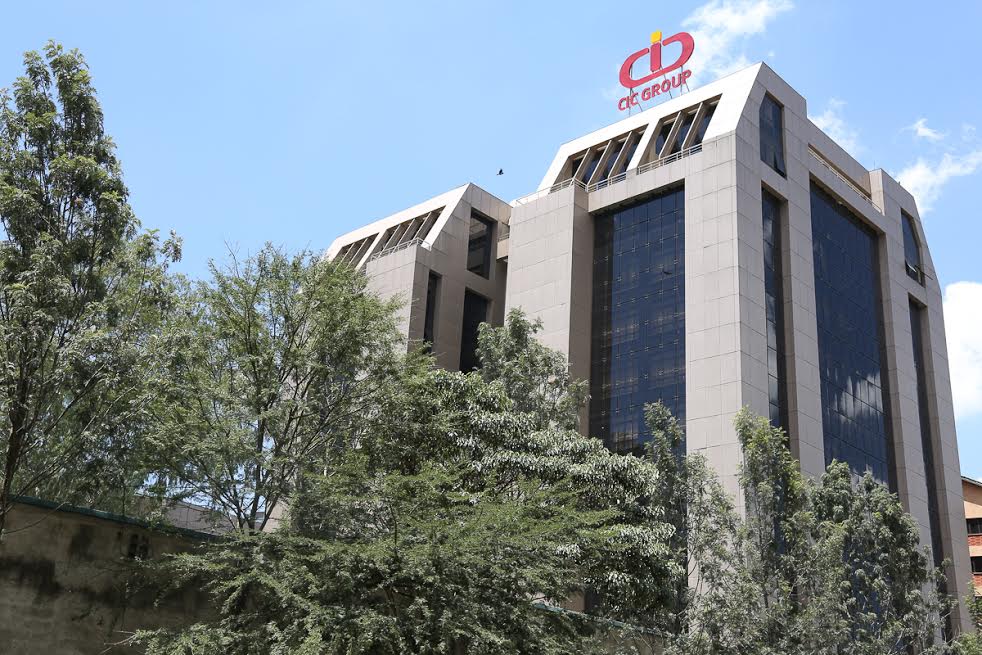Think of Fresh chewing gum, Big Bang lollipops, Veve chewing gum and Lotta toffees and your taste buds will instantly crave for something sweet, something to excite your tongue but as you extract the pulp out of these brands, someone somewhere has been to hell and back trying to put these products in retailer shelves.
All these are popular brands manufactured by Kenafric, one of the most successful confectionery manufacturers in the country built from scratch by billionaire businessman Bharat Shah and his family.
In order to get here, Mr. Shah first started as a wholesaler in the early 1980s when Kenafric was largely a distributor of retail and wholesale goods like sugar, maize flour, cooking fat, confectionery, sanitary paper products and pharmaceuticals.
However, in 1982 major political upheaval in Kenya almost wiped out the business sending the fledgling businessman back to the drawing board. He believed that Kenya presented a lot of opportunities, he was keen on fashioning them and his first failure was a stepping stone into the future.
Speaking during an interview with audit and financial firm, PricewaterhouseCoopers in The Africa Business Agenda published in 2017 Mr. Shah said that before the political upheaval, Kenafric had also bought a furniture manufacturer and business was booming in its earlier stages.
First Failure
But it dawned on Mr. Shah that the furniture business’ turnover was limited and did not have much room for growth, he sold the business but drew important business lessons from the experience.
“It was a learning experience, like finishing nursery school,”
Vice Chairman and Past Managing Director of Kenafric Industries Bharat Shah on his fist business failure
Around the same time, Kenafric had also stepped up its diversification plans and ventured into the footwear business. The company added polyvinyl chloride (PVC) products like shoes, slippers and gumboots to its portfolio.
Managing Kenafric Shoe Industries was Bharat’s first experience with importation requirements.
The company manufactured a shoe brand called Dancing Queen that was an instant hit with the market but in typical Kenyan fashion, the copycats circled around. One competitor hellbent on reaping heavy from the idea had 11 production machines compared to Kenafric’s three.
Bharat Shah
“My only choice and weapon was to take risks”, he recalls. The family committed to establishing Kenafric as the number one shoe manufacturer in Kenya in three years.
The Shah Family sustained the business through a difficult price war and fierce competition in the school shoe segment. The price of shoes fell dramatically and destabilized the market.
Bharat recalled the number of shoe manufacturers declining from 18 to four or five during this time.
“The people who didn’t have the guts— this is about the guts or courage that you need—started packing up and left,” he told the publication.
In 1989, Mr. Shah came head to head with his second challenge as the war between Iraq and Iran disrupted the market once more.
PVC is a petrochemical byproduct and as the war caused the price of oil to skyrocket, the price of PVC went up as well.
Kenafric was hugely dependent on PVC and just like other businesses that depend on imported inputs, Kenafric became vulnerable to the unanticipated development.
Lack of PVC dealt a huge blow to the Kenafric brand as Kenyan consumers could not tolerate the price increase and Bharat realised they were playing with fire.
“It’s very important to build the domestic line and the domestic market because if foreign markets collapse, you still have a strong local business,” Mr. Shah told PwC ” Product and market diversification helps to cushion you against these risks.”
Diversifying
The family had always dreamed of going into sugar manufacturing and by 1989, they had closed the distributorship to focus on manufacturing.
Furthermore, having experienced pressure on the PVC supply line during the Middle East war, they were keen to focus on a new product line: confectionery goods.
They bought second-hand machinery to produce hard-boiled candy and later bubble gum, ball gum and white mints.
Their interest in confectionery began with a realisation that 50% of Kenya’s population consisted of children.
“There is nothing cheaper than a sweet, for a child to enjoy his life,” said Bharat. And while the business was initially successful, in 1991 the value of the dollar fluctuated significantly in response to trade liberalization policies and frozen development partner activity.
The company was buying gum base from Belgium and needed foreign exchange to pay for it, but all the company had was Kenyan shillings. “Fortunately, the supplier was an owner-operated company and understood the dilemma,”
Bharat recalled. “If it had been a big corporate, we might have had problems.”
These were testing times for the business. “It made you think,” he said. “It made you analyze risks very carefully.”
Misreading the Market
Among all of the lessons that Bharat has learned in his 30- year working career, one of the most difficult lessons involves chocolate.
Until this time, the business had focused on the cheaper end of the confectionery market, but they believed that Kenya’s growing middle class presented an opportunity for more expensive products like chocolate.
Unfortunately, Bharat recalled, “We misread the market. Our chocolate line failed, and this was very disruptive to our business.”
At the same time, non-tariff costs were increasing and the shilling was depreciating. Sales declined, cash flow took a hit and the VAT refund owed to the business was very large.
Discouragement at board level trickled down to the rest of the business. Bharat recalled that it took about a year to recover.
He learnt some very important lessons. “With our chocolate business, we never looked at the other side of the coin,” says Bharat: “If it fails, how do you manage that scenario?”.
Diversification and Professionalisation
The company has already expanded into juice and food additives, having learnt some important lessons about competitive advantage.
Bharat believes that the keys to competitive edge are innovation, careful thinking and marketing.
Innovation, careful thinking and marketing are key to having a competitive edge.
“Brand has more value than your factory,” he says. “The common mentality was never to spend money on marketing but this is changing.”
Bharat Shah
He attributes this change to the next generation coming on board. “They have brought a degree of professionalisation to our marketing”, he adds.
Kenafric has since invested in professionalisation on many fronts, such as by implementing reporting levels and structures and identifying the right people to run the business
The business has several advisors who contribute expertise in different areas. Bharat recommends using trusted business advisors who have different perspectives to insiders.
In February 2017, Amethis Finance and Metier, a private equity fund manager, announced their partnership with Kenafric in the acquisition of a significant minority stake in their business. The move to bring in external investors is part of the Shah family’s plan to institutionalise the business and achieve its ambitious vision.
See Also: CEO Sitting on Sh65bn Portfolio From Sh 300,000 Capital













Leave a comment